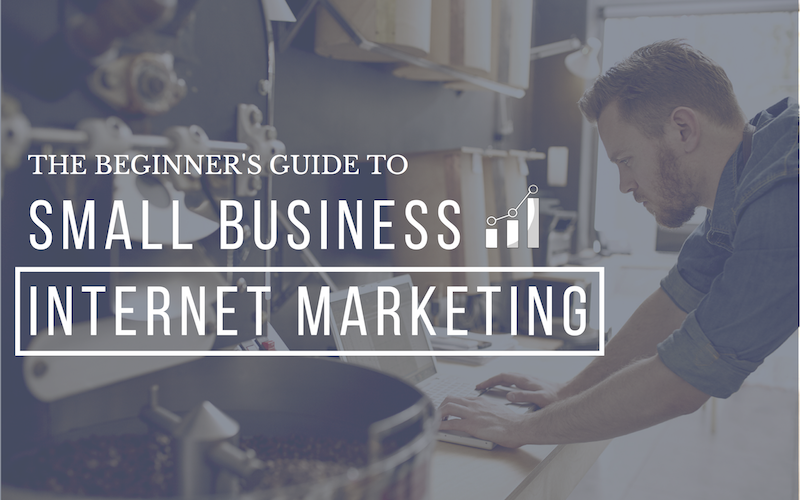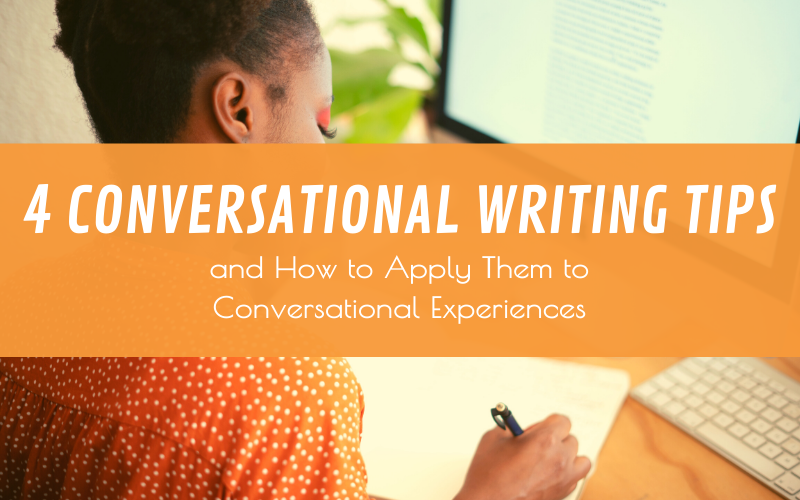Small business internet marketing can seem overwhelming for those just getting started. It’s a vast landscape and involves many moving parts. After all, different platforms and marketing methods resonate differently for different audiences, industries, niches and products.
For example, the fitness industry is very prominent on Instagram, while artists and musicians find a place on platforms like SoundCloud. YouTube is a popular destination for DIYers, crafters and toy-manufacturers. Snapchat, resonating with a much younger audience, has developed its own unique set of advertising features and offerings for internet marketers.
Part of the battle is knowing when, where, or how to start with internet marketing, while figuring out whether to put effort into organic web traffic or opting to finance for paid web traffic. Once you get this coveted traffic, will you email people periodically or engage them on social media? Perhaps, you’ll send them reminders about your company via SMS (text). But what’s the best way?
There are are many routes you can take along with tons of gurus claiming they’ve cracked the code to them all. Who do you believe? Where do you start?
As a small business owner, you’ll have to decide how digital marketing will fit into your overall marketing strategy. The fact remains that the internet is here to stay and will continue to change the way we reach our customers.
The Beginner’s Guide to Small Business Internet Marketing
When you’ve got a question, you’ll more than likely go to Google, or even Facebook, for an answer. Internet marketing is about intercepting those inquiries from people who are ready and willing to engage with your brand. The only downside is that there are thousands of other businesses competing for the same audiences.
It is getting more challenging and expensive to reach buying audiences online, but it’s not impossible. With a little creativity and willingness to test and explore the waters of internet marketing, you’re bound to hit a groove that can make a substantial impact on your bottom line.
If you want to get serious about your small business internet marketing, here are some basic marketing strategies to consider when getting started.
Small Business Internet Marketing Tips for Beginners
Know Your Objective
Small business internet marketing starts with knowing your marketing objective.
Are you looking to spread awareness about your brand or products, convert someone from brand awareness to buyer or take them from buyer to brand evangelist? Sometimes, you have to start with one marketing objective that could lead to another.
For example, if you’ve got a product that requires your market to be more educated on its use, you might just aim for exposure as a goal. If you’ve ever seen an ad in your Facebook or Instagram feed demonstrating a quirky product, this is an example of an awareness campaign. Sales could come from this type of campaign as a bonus, but the real aim is reach and awareness.
Once there’s sufficient awareness, you might move on to an objective that focuses on sales, adding email addresses to your list, Facebook fans or YouTube subscribers. Your ad copy, text image, platform or entire approach may change based on each unique marketing objective.
Understand Conversions
Many times, you’ll hear the word “conversions” when it comes to taking a prospective client from one level of engagement to the next. For example, taking a website visitor to an email list subscriber is considered a conversion event. Other conversion events include purchases, providing additional contact information or event sign-ups.
Conversion rates are what you’ll check to measure your success for online marketing campaigns. You might check conversion rates for a website landing page, Yelp listing or a Facebook Ad.
Typically, conversion rates are measured in a ratio of audience to action takers. Let’s say you have a website landing page with 1,000 visitors per day. Of those visitors, 100 signups for your email list per day. You’ve got a 10% conversion rate for this particular marketing objective on that particular page.
Once you have 10,000 email subscribers, let’s say that 300 of them purchase a product or visit your store to redeem an offer. Your email list converts at 3% (email subscriber to purchaser.)
This drop in conversion rate can happen as your “asks” become bigger. From here, you can either work to increase your conversion rates with different approaches or you could work to get more web visitors or people subscribed to your email list.
Conversion rates will vary for different industries and platforms. You might find that one marketing approach “converts” better and will eventually determine where you’ll focus your marketing efforts.
Consider Paid vs. Organic Traffic
As the internet becomes more of a crowded space, getting organic traffic to your website gets more difficult. Many platforms, especially social media, start off as great places to start marketing because the organic web traffic is plentiful and free.
Then, as business users begin to benefit from this traffic, the platform eventually monetize its own web presence through advertising offerings. Many digital marketers used clever long-term SEO (search engine optimization) tactics for years before Google introduced algorithm changes like the Penguin, Panda, and others that made these tactics ineffective virtually overnight.
Many of these seasoned internet marketing gurus found they had to change their web traffic strategy entirely. Some found success on social media platforms while others began paying for traffic with Google Adwords or other internet advertising networks.
Though good, white hat SEO techniques still work for organic web traffic, the rules are ever changing among search engines. Their attempt to reward high-quality websites, brands and good information has had adverse effects on many internet marketers across the board.
At some point, you may have to figure out when your go-to traffic and sales referral sources are no longer sending you quality organic traffic. You may have to eventually invest in paid traffic, through ad networks or social media to get better results.
Leverage Social Media
A social media marketing strategy is also a great way to leverage an internet presence. However, customized user experiences means that organic reach on social is limited. As a result, paid social ads are the most effective way to get in front of audiences on these platforms.
For example, Facebook fan pages were once a great, inexpensive way to raise brand awareness and push business updates out to millions of Facebook fans. Facebook eventually changed its algorithm so that Fan page updates are seen mainly through paid advertising on the platform.
Pinterest, a visual content aggregator, had been a godsend for bloggers and brands when it launched 7 years ago in 2010. Pinterest soon became an abundant, free source of traffic that still attracts large audiences for many fashion, food and beauty brands today.
Recently, Pinterest has been making algorithm changes to reduce automated pinning and favor manual Pinners and users that truly spend time directly on the platform. To reach your audience on Pinterest there are plenty of options for “Promoted Pins” which allow you to pay for more exposure to an audience.
Track Analytics
Once you get into paid traffic, marketing analytics will be extremely helpful. This data will help you analyze your main sources of traffic, along with how well this traffic “converts” into sales. From here you’ll want to figure out your lead acquisition costs. For example, you may pay $0.5 per email lead on Facebook or $2 per purchasing lead on Pinterest. Your Google Ads could fare much better or worse, but your analytics will tell the story.
Individual marketing platforms will usually have their own reporting features to give you insight on how your marketing efforts are coming along in real time. Google Analytics is a popular tool that helps you analyze traffic from many sources, while Facebook, Instagram, and Pinterest also have their own tools related to help you determine the effectiveness of your internet marketing campaigns.
Nurture with Email Marketing
We can’t have a conversation about internet marketing tips and tricks without talking about email marketing. It’s still one of the most effective ways to market products and services to an audience. In fact, one source says that email marketing converts four times better than other marketing methods including social media, direct mail and paid search!
Email marketing converts 4x better than other marketing methods
The idea about email is that people on your list have signed up to hear specifically from you and about your business. In this way, an email list is usually a highly valuable engaged audience.
Email marketing can work with a variety of approaches: sequences, funnels and webinars can cultivate a lead through a series of emails that work for different purposes. Some email sequences can welcome a lead into your world, while another one primes a customer for buying big-ticket items by selling smaller, related products.
Because of how effective your email list can be, it makes sense to craft many of your marketing efforts to attract people into your email list. For example, many people run Facebook ads for the sole purpose of adding people to their email list.
Visit any website these days and you’ll likely encounter a pop-up that asks for your email address. Websites are chock-full of capture mechanisms for email and for a good reason: email converts better! For this reason, you should make starting and growing an email list a priority in your small business internet marketing efforts.
Discover Local Marketing
If your product or business requires offline interaction, these online marketing tips for small businesses still work for you. You may just have some different routes to explore when it comes to getting clients with internet marketing strategies.
Some tools you might consider:
- Facebook local awareness ads
- Yelp listing or advertising
- Google local business listings
- Groupon (or other discount aggregators like Living Social)
- Snapchat local Geofilters
Overall Internet Marketing Approach
Remember, digital marketing is not a silver bullet for boosting your sales, nor is it a quick fix for your revenue woes. Think of it like farming- you’ll take time preparing the soil, planting the seeds, watering them and ultimately reaping a harvest. Each of these steps are separate and require resources like time, effort and money to make a real difference.
The good news is that internet marketing methods are more accessible than ever. You can start simply and pivot quickly to find the best marketing strategies for online business that work for you. Before long, you’ll have a well-crafted, comprehensive marketing approach.




